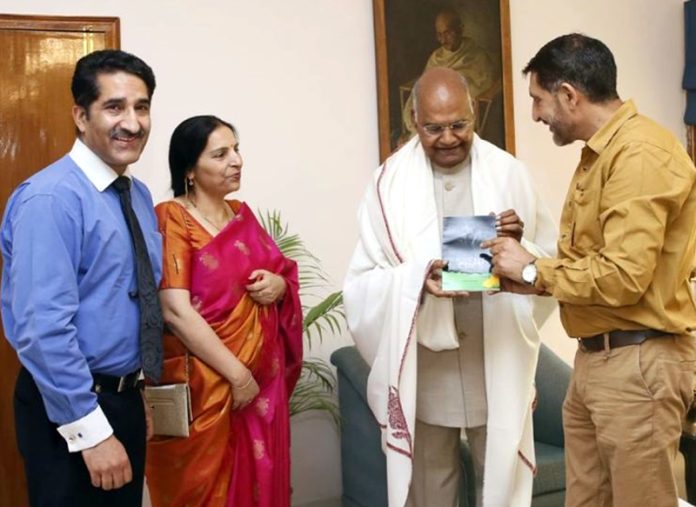
Excelsior Correspondent
JAMMU, Apr 26: Kuldeep Kashmiri, the author of the poignant book “Silent Cries,” presented the Book to former President of India, Ram Nath Kovind, at Raj Bhavan of Punjab, Chandigarh today.
He was invited by former President to Raj Bhavan Punjab for a special meeting as Kuldeep Kashmiri had sent a copy of his book to Ram Nath Kovind by post two months back. After going through the book former President invited Kashmiri to Raj Bhavan Punjab for special meeting. This meeting marked the first instance where the unspoken tragedy of Kashmir, eloquently highlighted by a displaced Kashmiri Pandit, found a receptive audience in the highest echelons of power. Former President, in a commendable gesture, sought to acknowledge the enduring patience and unwavering solidarity of the victims of terror, who have endured exile for over three decades. In his statement following the meeting, Kuldeep Kashmiri expressed profound gratitude to Kovind for affording him a generous and profoundly meaningful hearing, wherein the sufferings of the Kashmiri Pandit community were earnestly acknowledged.
During their conversation, Kuldeep Kashmiri meticulously elucidated the multifaceted challenges confronting his community, underscoring the urgent need for concerted action to address them. With a sense of urgency, he implored former President, Ram Nath Kovind to use his good offices to expedite measures to alleviate these issues, recognizing the imperative of swift and decisive action.
He was accompanied by his wife, Tota Kumari, and brother, Dr. K K Pandita. Kashmiri’s presence underscored the collective resolve and determination of the Kashmiri Pandit diaspora to reclaim their rightful place in their motherland Kashmir. This meeting symbolized a significant step towards fostering greater understanding and empathy towards the plight of the Kashmiri Pandits, while also signalling a commitment to address their grievances with the seriousness and urgency they deserve. As they departed from the hallowed halls of Raj Bhavan Punjab, there was a palpable sense of hope that their voices had been heard and that tangible steps would be taken to bring about meaningful change for their community.

